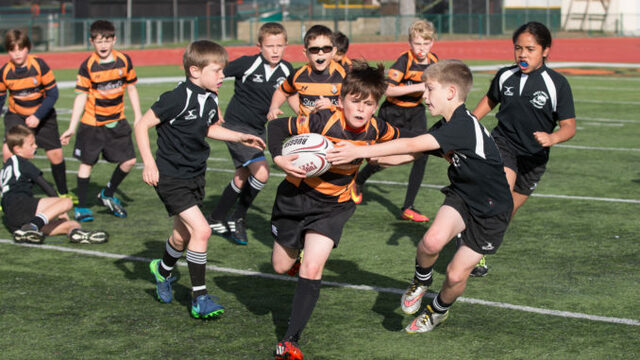Is the sport lacking a global star?
In a break during training recently I took the opportunity to ask a group of our Under 12s whether they had sat down and watched any of the great rugby we had been treated to recent weeks.
Had they enjoyed some of the classic Rugby Championship match-ups? Or been entertained by the glut of tries served up by the opening rounds of the English Premiership?
Sadly, only one, whose father happens to write about the sport for a living, had done so while another was keen to stress he had been to watch the 1st XV.
Not one of these young fans of the sport felt compelled to follow the fortunes of a team or even a player.
This rather surprising answer prompted many thoughts and concerns regarding their development and the sport’s apparent failure to appeal to this generation.
It certainly raises the question marks about the lack of rugby union on free-to-air TV in the UK where the vast majority of rights are held by subscription-based channels.
Those without the means to pay for this are limited to the occasional one-off club game offered on terrestrial TV, which is only a recent development, and highlights packages that are tucked away in the schedules.
Most fans must wait to feast on the entirely free-to-air Six Nations which certainly goes some way to explaining the ongoing popularity of that annual battle, or maybe wait for the Rugby World Cup to roll around.
It also offers an insight into how young people are engaging with the media, or not, in a world dominated by devices and the growing influence of the likes of Instagram and Twitter.
There is certainly evidence to suggest that platforms such as YouTube are much more important to youngsters than traditional viewing methods, even in this convenient ‘catch-up’ era.
Additionally, it perhaps highlights the sport’s lack of a truly global star to pique the interest of the next generation of players, earn their loyalty and devotion and drive not only their development but that of the sport as well.
Who are the sport’s leading figures today and does their profile extend beyond the realms of rugby union?
Jonah Lomu stood like a Colossus over the game for so long, and to a certain degree still does due in part to the failure of anyone to fill his sizeable boots.
The likes of Jonny Wilkinson, Richie McCaw, Dan Carter and Brian O’Driscoll flirted with such fame but in reality didn’t come close to Lomu’s sky-high profile.
Today, the likes of Beauden Barrett, Israel Folau and Owen Farrell can only dream of that level of popularity or traffic-stopping stardom.
The biggest name in the sport is not that of a player but that of a team – the All Blacks.
They are arguably the most successful team of all-time, one of the most powerful brands full stop and the benchmark when it comes to consistent excellence.
A recent ‘All or Nothing’ behind-the-scenes documentary produced by Amazon only cemented their status as arguably the most compelling and important name in the sport today.
This makes the recent suggestion that the All Blacks’ appeal is possibly on the wane even more alarming.
Following his decision to turn his back on international rugby and pursue a career with English side Wasps, former All Blacks fly-half Lima Sopoaga admitted that the riches on offer outside of New Zealand are just too good to resist.
His revelation that for an increasing number of players in his generation the sport is simply ‘a business these days’ and that ‘the jersey is not enough for a better life’ quite rightly caused concern at home and abroad.
Perhaps a key indicator to the sport’s current plight was visible at the recent event to mark one year to go to the 2019 Rugby World Cup.
A number of suit-clad officials and dignitaries passed a ceremonial ball along a stage to mark the occasion and supposedly whet your appetite for the sport’s latest global showpiece.
The absence of a ‘star’, past or present, to raise the profile of the event, generate headlines around the world and send fans new and old dashing to ticket offices was noticeable was painfully clear.
As a football-mad youngster, which itself says something about the lure of rugby union and televised sport in the 80s and 90s, I spent hours in the garden pretending to be the likes Glenn Hoddle and Bryan Robson having been inspired by watching them on TV.
Football has had a similar impact on my own son largely due to its profile and exposure and while he also loves his rugby it is the heroics of Eden Hazard and Lionel Messi that he is often found re-enacting.
How important is such an idol in a child’s development? Does it not help them to push their creative and technical boundaries and therefore be more creative by borrowing ideas and incorporating them into their own skill set?
Or does the absence of one allow them complete freedom to find their own answers to on-field questions and do it their way?
In turn, how does this impact on how we coach young players and encourage them to dream big?
This is clearly especially when a parent, the most important and truly constant voice throughout a child’s development, is unable to draw on their own experiences or knowledge of the sport.
It certainly underlines the power of every word that leaves your mouth and the messages, ideas and values you are trying to convey when you are the most important, and perhaps only, person driving their development.
It is up to you to open their eyes to their own potential and enlighten them as to what the sport can offer them both on and off the field.


